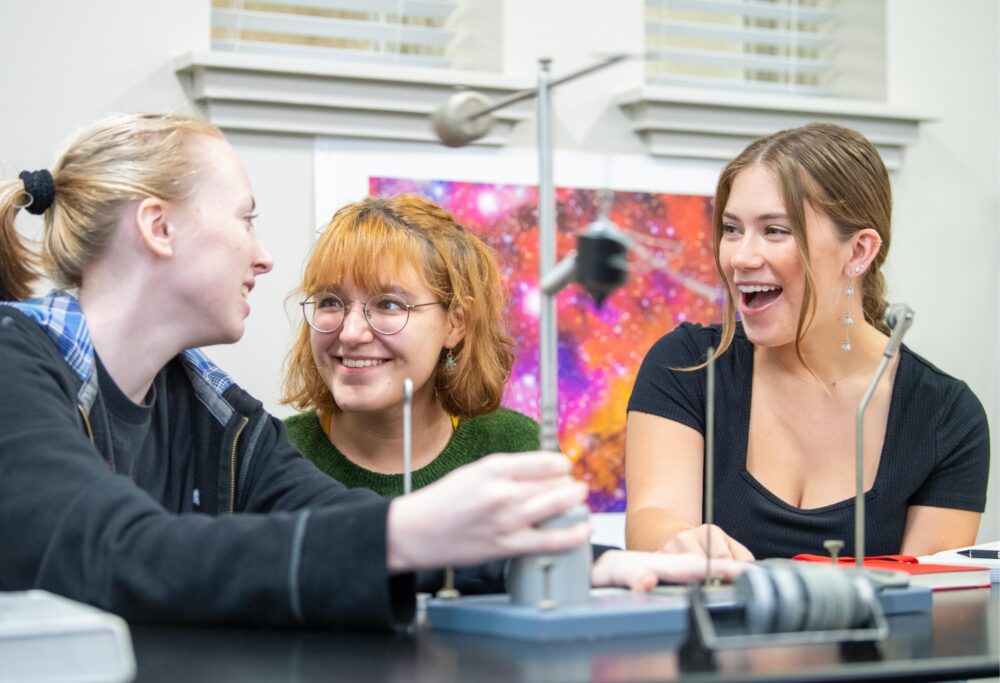Physics

Physics is an ever-changing branch of science that is primarily concerned with the properties and interactions of matter and energy. Physicists strive to understand the universe and derive fundamental relationships that can be utilized to understand how matter and energy interact. For this reason, physics is often considered to be the “fundamental” science. There are two main branches of physics – classical physics and modern physics – and within these branches there are many different and exciting disciplines such as classical mechanics, quantum mechanics, applied physics, condensed matter (solid-state) physics, astrophysics, biophysics, electromagnetism, electronics, optics, nuclear physics, and particle physics, amongst many other fields.
Students studying physics will learn about the fundamental physical laws that govern our universe. They will acquire knowledge and understanding of many physics concepts, including, but not limited to, classical mechanics, thermodynamics, electromagnetism, electronics, sound, optics, astronomy, materials, and mechanical equilibrium. With this knowledge, students will enhance their understanding of many different aspects of their day-to-day lives. Furthermore, students will learn how to apply this knowledge to solve various physical problems, as well as how to communicate the application of this knowledge to others.
The Physics Department will help students develop and improve their critical thinking, problem solving, scientific writing, and experimental designing skills through the application of their physics knowledge. Students will also hone their mathematical skills, including the uses of algebra, trigonometry, and calculus, through solving various physics problems and analyzing experimental data. Additionally, as students will often work together as small teams to develop a hypothesis, design an experiment, and collect and analyze experimental data, students’ interpersonal skills will also be polished. Highly motivated students will also have the opportunity to participate in experimental and computational research in the fields of materials physics, robotics, aeronautical physics, and lasers/optics.
Students who study physics may go on to major in any of the STEM fields. For example, an understanding of physics is necessary to major in engineering, the natural sciences (such as physics and chemistry), or in the biomedical or pre-med disciplines. Because physics is required for many college majors, there are a variety of careers that students who study physics could pursue. Students could work as a scientist, an engineer, in academia, in the medical field, or even in computer science. Furthermore, the critical thinking and problem solving skills developed in physics courses are applicable to many non-STEM disciplines and are often extremely desirable to employers, meaning that taking physics courses should help prepare you for both college and a future career.
Watch the Physics Department overview video here.
-
Dr. Jessica Alexander
View Full Bio -
Dr. Victor Irby
View Full Bio -
Dr. Mark Byrne
View Full Bio
Course Catalog
View a list of ASMS physics classes in our Course Catalog.

Request Info.
Interested in learning more about the academic offerings at ASMS? Click here to request more information from our admissions department.